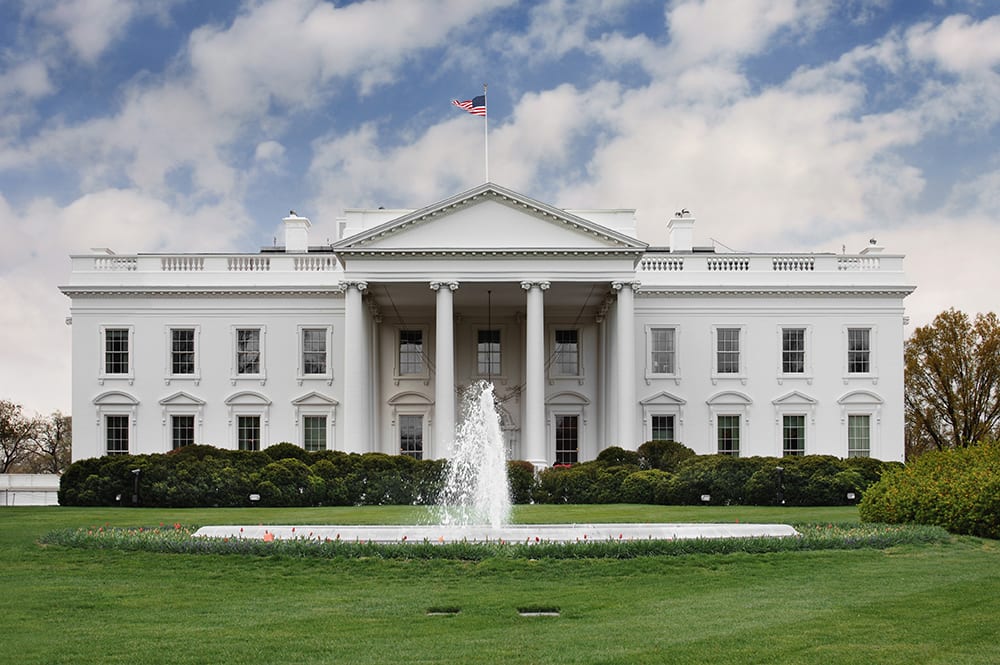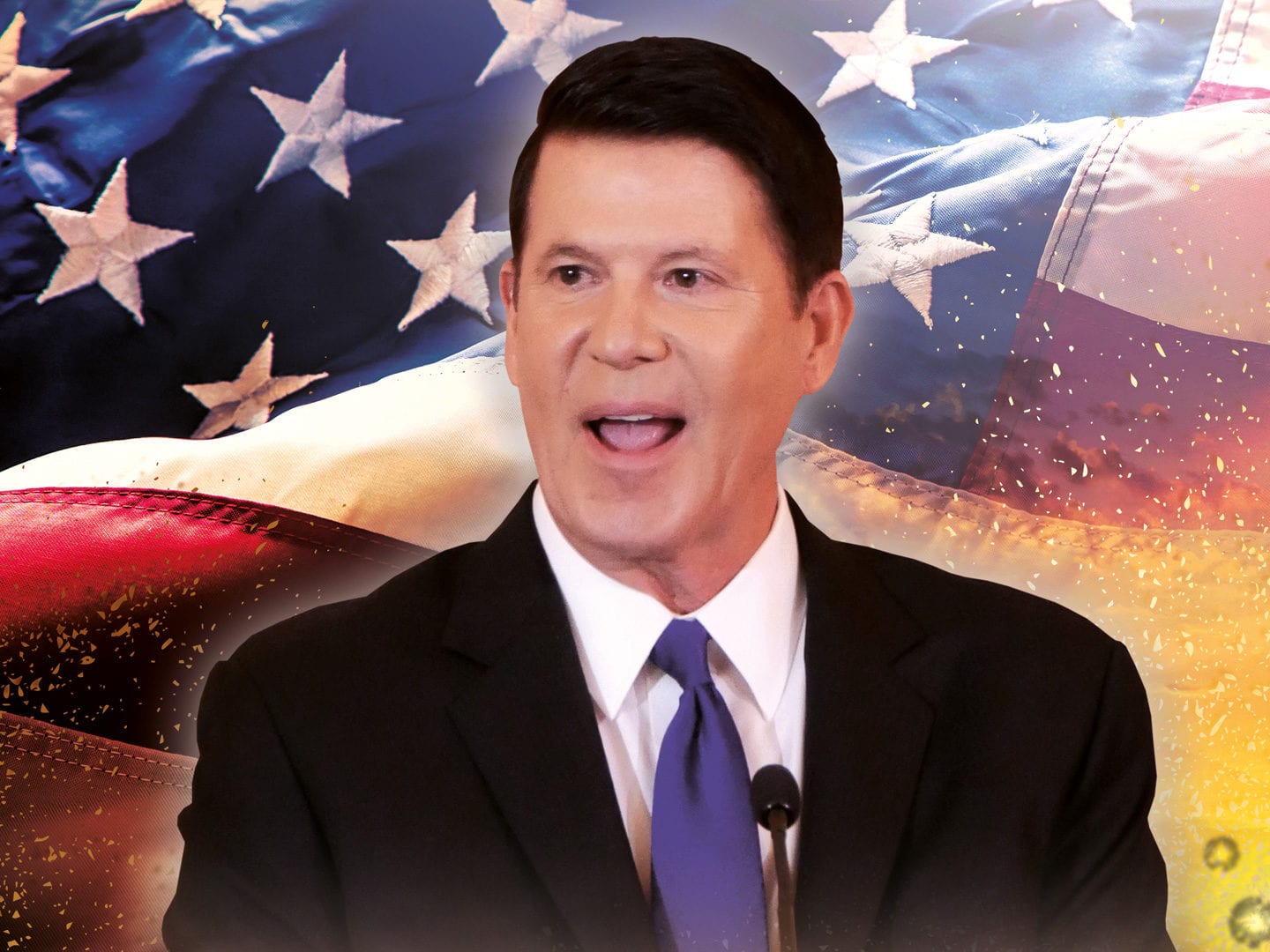For me, Keith Krach is exceptional – for many reasons. The 62-year-old American is one of the big digital visionaries. He founded two companies in Silicon Valley that made him a multi-billionaire. He has a reputation of being a gifted manager who can motivate teams to deliver top performance. In 2019, Harvard Business School named him “Business Leader of the Year.”
Keith Krach is called “the Magic One” – an American epithet for those regarded as legends in their fields of expertise. Now, after a rare unanimous vote of confirmation from the Senate, the father of five is beginning a career in the upper echelons of U.S. politics. In his first job as Undersecretary of State, he is his country’s leading diplomat in economic matters, reporting direct to Secretary of State Mike Pompeo. Many consider Krach to be Washington’s “rising star”.
Improving the alliance with the EU
His goal is to transform economic diplomacy and he is committed to achieving global economic security. In his statement before the Senate Committee on Foreign Relations, he said: “… my focus will be on embracing this opportunity and harnessing three powerful areas of competitive advantage: strengthening our partnerships with friends and allies, leveraging the innovation and resources of the private sector, and amplifying the moral high ground of our American values and enduring optimism to advance peace and prosperity for our country and for the world.”
To ensure he succeeds in this, he is also pushing to improve the alliance with the EU. And, as the world’s fourth-largest economic power, Germany has a special role to play here. No wonder, that Krach’s first port of call abroad was Frankfurt am Main, to meet with German CEOs and discuss both the state of the transatlantic partnership and the role of China. “I was surprised how interested Krach was to hear our opinions,” says one of the attendees at the dinner for CEOs organized by DUB UNTERNEHMER-magazine, “and we had a candid discussion about China’s growing economic influence in Germany.”
I first met Krach three years ago at a dinner in San Francisco, when he was still CEO of DocuSign. His mission was to create a paperless world. DocuSign users can, for example, sign contracts online. A bit provocatively, I introduced myself to Krach as his enemy – as someone who continued to believe in paper. His response to my attack was unusual: he invited me to join DocuSign’s advisory board. What started with a provocation turned into a friendship.
Krach was born in Ohio. At the age of 12, he began working as a welder in his father’s workshop. At 26, the Harvard graduate became General Motors’ youngest ever vice president. In the 1990s, Krach gravitated toward Silicon Valley, where he founded Ariba and organized its IPO. He later sold the B2B commerce provider to SAP for 4.3 billion U.S. dollars. After that, he went on a trip round the world with his family. In 2009, the consummate entrepreneur became chairman of DocuSign, getting the company in shape to go public in 2018. The software company is currently worth 12 billion dollars.

From Silicon Valley to Washington: The billionaire is responsible for global economic security in the U.S. administration
A Transformation Pro
Now, the self-made billionaire has embarked on a career in Washington. As he himself has stated: “I want to give something back to the great nation that has given me so much.” In the U.S., moving from the business world into politics is possible, even welcome. In Germany, there are hardly any examples of successful CEOs making it to the top of the political pyramid in Berlin. It is party stalwarts that rule the roost there. But this sort of interchange would be so important – after all, the digital transformation poses gigantic challenges for all of us. So it’s not a bad thing for the political sphere to have pros like Krach around, who know what it means to make systems future-proof and competitive.
Krach stands for change. In his department, he has supplemented formal work meetings with informal talks. That means employees can now exchange ideas across different hierarchical levels. “So information flows better and we have become more efficient,” says one employee of the department through which a breath of the Silicon Valley thinking is now blowing.
In my capacity as a publisher, I spoke to Keith Krach during his visit to Frankfurt about the obligation to give something back, his relationship with Germany, and the trade conflict with China.
Krach on his move to politics:
“My prime motivation was to give back to our great country, which has given my family and me so much. Second, it has always been one of my core values to keep pushing for new challenges – or to jump in head first as I like to say; to try things out that are frightening, or difficult, or simply new. To give it all you’ve got and not be afraid to fail is the best way to grow, learn, and live. As I was weighing up whether to jump into this, the deepest of all waters, I was guided by one thought: ‘How could I look myself in the eye if I decided not to step up and follow the call to serve my country?’ Third, I decided to take this step so that I could make a difference. The threats to democracy on the world stage are both real and urgent. And they demand our attention at this very moment. I already mentioned in my confirmation hearing that the reality we face in the free world is one of ever-increasing cyber warfare and seemingly ceaseless variations of intense, perhaps even weaponized, economic competition. Everyone knows the Chinese have staying power in this area – and they take things seriously. They consider themselves to be grand masters in a four-dimensional game of economic, military, diplomatic, and cultural chess. The worst thing, however, is that they believe themselves to be above the rules.”
Krach quotes excerpts from a speech by his boss, U.S. Secretary of State Pompeo. According to Pompeo, the U.S. for decades granted China scope to rise and even encouraged it – on the assumption that the country would abide by the rules; in the hope that communist China would become freer, more market-oriented, and ultimately perhaps more democratic. Krach talks openly about what he sees as the mistakes made.
Krach on the West’s errors:
“U.S. industry has lost all its intellectual property, and enabled voluntary and involuntary technology transfers. That has led to a discussion of China’s strategy of maintaining a parasitic relationship with its host countries. It’s also about how China’s doctrine of economic warfare has roots in its military doctrine, which arose a good 2,500 years ago in the Warring States Period – during the time of General Sunzi, author of The Art of War. The latter work contains concepts such as: when you are weak, act strong, when you are strong, act weak; the highest paid person in the army is the spy; speed is the ultimate weapon. And how these ideas find expression in China’s modern doctrine of economic warfare – which is based on deception, economic retaliation, parasitic relationships, the theft of intellectual property, and the endless search for advanced manufacturing technology – and in the country’s strategic plan ‘Made in China 2025.’ There is also talk about how, after German robotics company Kuka was acquired by Chinese firm Midea in 2016, profits declined because customers placed their business elsewhere – and how the German CEO of Kuka threw in the towel in 2018 due to fundamental differences of opinion with the company’s Chinese management. I have had great respect for Kuka’s technology since I was head of GM Fanuc Robotics in the 1980s and installed a lot of robots in Daimler, BMW, and Opel plants.”
Like the rest of the U.S. administration, Krach’s rhetoric about China’s strategy is more than clear these days. Germany should learn from the errors made by the U.S., he advises.
Krach on the influence he sees China wielding in Germany:
“Three examples: The German photovoltaic module industry was undermined by Chinese competition and dumping prices. SolarWorld, Germany’s last major module manufacturer, filed for insolvency in May 2017. Then, in summer 2019, Vossloh – a German-based global leader in rail technology and one of the key manufacturers of rail links in North America – announced it was selling a loss-making locomotive plant to CRRC, a Chinese company and the world’s biggest manufacturer. I have heard that industry insiders expressed concern about a potential takeover. Low profitability appears to have scared off investors from the West, but not CRRC, which enjoys state support. And, last July, the Beijing Autogroup acquired a five-percent stake in Daimler, raising the total under Chinese control to almost 15 percent. Daimler’s main shareholder, automaker Geely, sidestepped regulatory scrutiny by using complex derivatives to acquire its 9.7-percent stake. All in all, this could allow Chinese players to gain insights into Daimler’s strategy. It’s the start of a parasitic relationship.”
For the benefit of German CEOs, Krach reiterates the special constellation prevailing in China.
Krach’s advice to german managers:
“I offer German CEOs the same advice I give American ones. It’s not about the Chinese people, whom we greatly respect. It’s about the government headed by the Communist Party. I just attended a meeting of some 1,500 managers. I said three things there. First – and this has always been my conviction – entrepreneurial responsibility is social responsibility. Today, I say that it is also a question of global economic security. Second, China has enacted a National Intelligence Law. It states that every company, whether state-owned or not, and every Chinese citizen, is obligated to pass on all information, all technological property, all intellectual property, and all data to the government – meaning to the Communist Party and the People’s Liberation Army, they are all one and the same – or suffer the consequences. Third, and here I am quoting Secretary of State Pompeo: ‘We have to treat them as they are and not what we hope they will become.’”
Content
- German Version: The Rising Star: Keith Krach
- English Version: The Rising Star: Keith Krach





